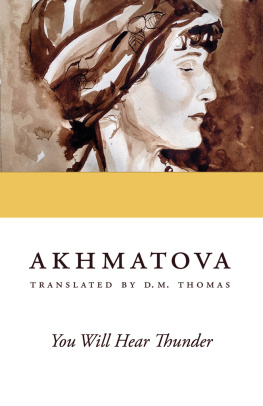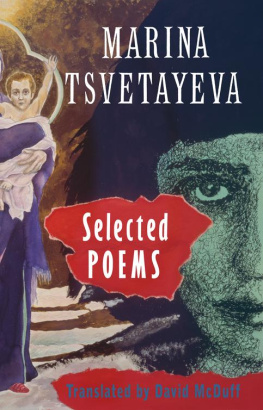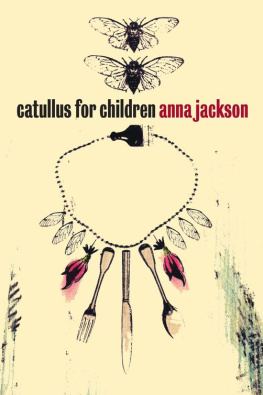Fifteen Poems of Anna Akhmatova translated by Graeme Davis Part two in the series Selected Poems of the Russian Symbolists: Bryusov, Akhmatova and Mandelstam
Contents
Introduction storm clouds over darkened Russia
Once, many of the poems of Anna Akhmatova circulated in samizdat form, either printed in secret or copied by hand. Today Russian printed editions are available, along with English translations of many of them, yet access (especially in English translation) is not as easy as would be liked. Surely she kcily and England where she met up with some friends who had left Russia nearly half a century previously.
va prepared though n would have appreciated the opportunities offered by Kindle! Anna Akhmatova (1889-1966) is the pen-name of Anna Andreyevna Gorenko, with the name Akhmatova adopted both in deference to her fathers wish that the respectable Gorenko name should not be associated with mere poetry and as a tribute to her grandmother Akhmatova, whose distinctively Tatar surname hints at a claimed descent from Genghis Khan. She spent much of her early life between the Black Sea (where her family had a dacha) and Tsarskoye Selo, the Tsars village close to St Petersburg. Her poetic heritage includes a distant relationship with Anna Bunina, Russias first woman poet and the aunt off her grandfather. Her inspiration was the Russian tradition including Pushkin, as well as the Symbolist movement brought to Russia by Valery Bryusov.
A member of the 1910 Guild of Poets she is a leading figure in the Acmeist movement, in effect espousing a branch of Symbolism which is anti-Symbolist. The Acmeists stressed compactness of form and exactness in order to express what they called the acme of a subject, borrowing the Greek word for the best. Following the Russian Revolution her opposition to the Soviet system stands in contrast with the support for the new regime offered by Bryusov. Many of her friends and social group emigrated. This collection represents a selection of her early work concerning the First World War and the Russian revolution. The horror of this blackest ulcer dominates her writing.
Her first husband Nikolai Gumilev, also a poet, was executed in 1921 by firing squad on the charge of monarchist conspiracies, of which he was probably innocent. Many friends were sentenced to internal exile or to the Gulag, while in 1949 her son was sentenced to ten years in the Gulag. At this time an arrest warrant for Akhmatova was prepared though not signed. She spent many years under surveillance, and was accused of poisoning the minds of Soviet youth. Only in her final years was Akhmatova honoured in the USSR. Akhmatova is remembered as the first major woman poet in Russian.
Isaiah Berlin described her as an unsurrendering human being and commended her passive resistance. The expression of these qualities is in the power of her carefully crafted poems. She speaks out against the horrors of the First World War and the Soviet system, yet remains loyal to her Christian roots and to the values embodied by St Petersburg, city of the emperor Peter. It was her misfortune to live in an age when (as she suggests in July 1914) men cast lots for Christs garments.
Song of the Last Meeting
My breasts turned cold with helplessness But my steps were light. I placed the glove from my left hand Onto my right.
And it seemed that there were many steps Though I knew there are only three. In the maple trees was a whisper of autumn That said: Die with me I have been deceived by a melancholy, Changeable, evil fate. I replied: My dear, my dear! I too have been deceived Ill die with you This is the song of the last meeting. I glanced back at the dark house. Only in the bedroom were candles burning With an indifferent, yellow flame.
I see the faded flag over the customs house
I see the faded flag over the customs house And over the city a yellow murk.
And already my heart is beginning to miss a beat And its painful to breathe. If only I could become once again that little girl by the sea. If only I could put soft shoes on my naked feet And plait my hair in a crown And sin with an excited voice. If only I could look long at the dusty domes Of the cathedral in Khersones from the porch And not know that from happiness and fame Hearts grow decrepit hopelessly.
A Room at Evening
I am talking now with these words Which only once are born in the soul. A bee is buzzing on the white chrysanthemum And the old sachet gives off such an overpowering fragrance.
And the room where the windows are too narrow Preserves love and remembers the past. And above the bedstead is an inscription in French Announcing: Seigneur, ayez piti de nous. The sad notations of an old fairy story You, my soul, do not touch and do not search for I look, and on the gleaming Sevres statuette The glazed cloaks have faded. The last sun-beam, both yellow and heavy, Has petrified in the bouquet of bright dahlias And, as in a dream, I hear the sound of a violin And the occasional calls from a harpsichord.
The Prayer
Give me bitter years of illness, Of suffocation, sleeplessness, fever. Take away my child and my friend, And my mysterious poetic gift.
Thus I pray during Thy liturgy, After so many agonising days, So that the storm-clouds over darkened Russia Should become white-clouds in the glory of Thy rays.
Verses about St Petersburg
Once again St Isaacs is arrayed In molten silver. There grows cold in threatening impatience The steed of the Great Peter. The wind, suffocating and severe, Sweeps soot down from the black chimneys. Ah! With his new capital The emperor is dissatisfied. My heart beats evenly, in measure.
What do the long years matter to me! After all, beneath the arch in Galyemoy Street Our shadows are forever. Across the turned down ages I see, I see you and I And forever in your hand My unopened fan. Because we stood next to each other At a blessed moment of wonder, In a moment when over the summer garden The pink moon was resurrected. I dont need the waiting By the hateful window And wearisome meetings. The whole of love has been slaked.
When in suicidal depression
When in suicidal depression The people were awaiting their German guests, And the austere spirit of Byzantium Was fleeing the Russian Church, When the capital on the Neva, Having forgot its majesty, Like a drunken whore Did not know who would take her, I heard a voice.
When in suicidal depression
When in suicidal depression The people were awaiting their German guests, And the austere spirit of Byzantium Was fleeing the Russian Church, When the capital on the Neva, Having forgot its majesty, Like a drunken whore Did not know who would take her, I heard a voice.
It was calling consolingly, It was saying Come here, Leave your provincial and sinful land, Leave Russia forever. I will wash your hands free of blood-stains, I will rid your heart of this black shame, I will cover with a new name Pain of defeat and insults. But indifferent and calmly I cover my ears with my hands In order that this ignoble speech Should not profane my sorrowful soul.
How is this century worse than those which went before?
How is this century worse than those which went before? Could It be that in the smoke of sorrows and anxieties It touched the blackest ulcer, But was unable to cure it? Still in the west the earths sun is shining And city roofs shine in her rays, But here the white woman is already marking our houses with crosses And is summoning the ravens, and the ravens are flying.
We thought that we were poor
We thought that we were poor, that we had nothing at all, But when we began to lose one thing after another, So that every day became a day of remembrance, We began to compose songs About the great generosity of God And about our former wealth.
Next page






